Twenty first of June 2019. It’s a date John Fleming will “never forget."
Because that’s when this fifth-generation dairy farmer sold his first scoop of Muckross Creamery ice cream.
“The longest day of the year,” he says, smiling. “I’d never sold anything to the public before that.” But now into his sixth summer in business, it’s fair to say he hasn’t looked back.
“Ice cream is a fun product… and it’s happiness,” says John. “Even the fact that we start with bringing a cow out this morning, getting milk off of her and within 24 hours, you have a product there. It’s a great adventure.”
Location, location, location
As the business name suggests, John lives and farms outside Killarney, Co Kerry with his wife Catherine and children, Elizabeth, Kate, Peig, Patrick, Eleanor and Jerry, who range in from ages 18 to 4.
He took over from his father, Patrick, in 2007, initially diversifying from mixed farming to dairying to supply Kerry Group. Having dried off this past winter for the first time, he is currently milking 79 Holstein Friesians, but plans to build up his herd again.
When it came to starting an on-farm business, John initially looked into selling his own milk directly, followed by cheese.
However, given the farm’s location on the tourist hot spot that is the Ring of Kerry, ice cream seemed a smart choice.
“One of the main drivers would be location,” he says. “From Muckross House, we’re a mile, a mile and a half.”
Location aside, there was another important factor.
“Having a wife that’s very driven,” he says, as Catherine – a vet who now works in the pharmaceutical industry – joins us for a chat.
She felt that ice cream would be a good fit for John and for their family, while complementing their farm business.
“For many dairy farmers, you’re working seven to seven, seven days, and there isn’t a huge amount to show for it,” she acknowledges. “I felt this would give us a bit of freedom from the commodity market of milk.”
One of the first steps was to contact the Department of Agriculture to ask what adjustments they would need to make to a back kitchen in their home to make it suitable for production (i.e. adding tiling and a fly screen).
They also spoke to other artisan ice-cream producers; sourced second-hand equipment like a pasteuriser, skimming machine and churn; and completed an intensive ice cream science course at UCC.
John estimates they spent about €20,000 to get up and selling in June 2019, initially starting with an ice cream cart on the Ross Road on the outskirts of Killarney town.
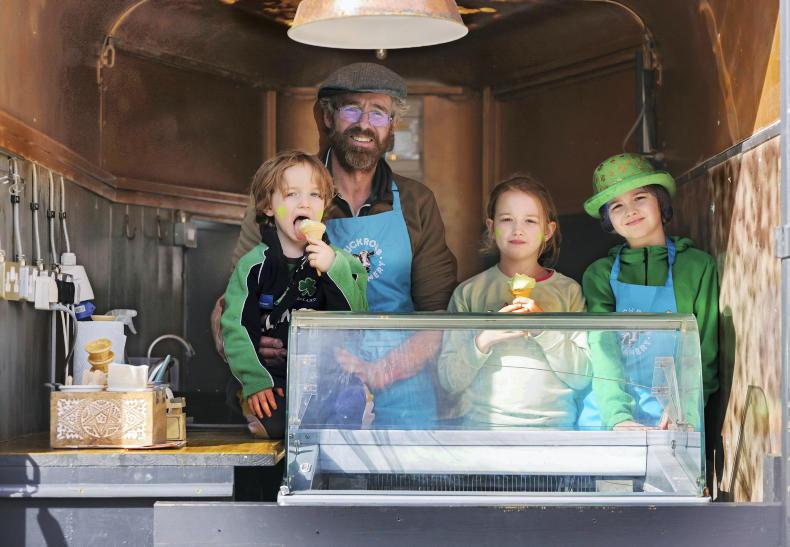
John with kids Jerry, Peig and Patrick during the St Patrick’s Festival Parade, Killarney.
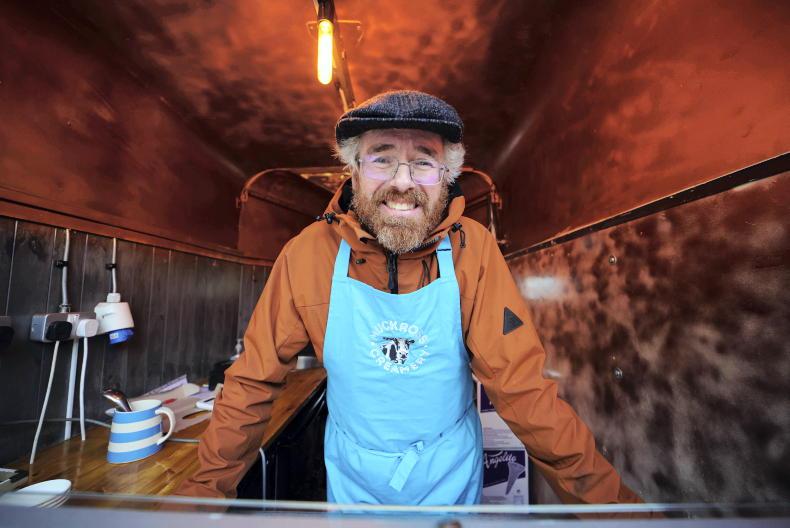
John Fleming, with his signature Muckross Creamery ice cream, on the street. \ Valerie O'Sullivan
Culture shock
While this was “a culture shock”, getting face to face with customers early on was “the best thing ever."
“It forces you out of your comfort zone. It’s great to be dealing with the public,” he says. “That’s when you get real feedback.”
The Flemings describe their
process as “cow to cone," using their own milk and cream alongside free-range eggs and local ingredients like Sliabh Luachra strawberries.
Their current bestseller is crunchy caramel pecan ice cream, though seasonal flavours like mango or blackcurrant are also popular.
While John initially sold his ice cream directly, the business now has several strands.
Having completed the Food Academy course, it is available at Daly’s SuperValu in Killarney, where their standard 240ml tub retails at €3.87.
It is also on the menu at hotels and cafes including The Ross, Dinis Cottage and The Killarney Brewing Company, as well as food trucks in some of the Kingdom’s most scenic locations.
Local festivals, and bookings for private events like weddings are equally key, and crucially, can be worked around farm life.
Speaking of which, in conjunction with the five-star Killarney Park Hotel, the Flemings now offer private tours of the farm to show tourists their practices, process and end product, while off-season, Santa Claus visits a renovated cottage on their land for festive family experiences.
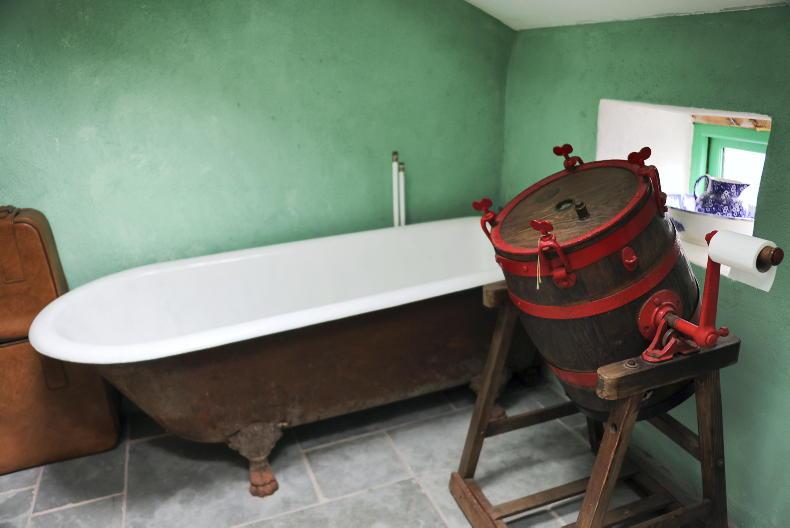
The Flemings had to make their home suitable for production.
Work-life balance
Growth has meant further investment.
John estimates they spent at least
another €50,000 on equipment including a bigger churn and freezer, though this time with 50% funding from Leader.
They are currently putting in three phase power, and will be moving into a purpose-built production unit on the farm shortly.
Down the line, they hope to extend their product range i.e. create a yogurt to sell to local hotels using skimmed milk that was previously going to their calves.
However, with a young family, John and Catherine are conscious of building a business that is sustainable in every sense. Staying true to their core values is key.
“If you want to use Irish products, use Irish products,” says Catherine.
“If you start looking at the price, you’ll straight away dump the Irish [ingredients] and go with the cheap ones.
But you have to stay true to your own values. You can’t just talk the talk and walk a different walk.
“Those kinds of things, they might not reward you now; but they will eventually.”
Longer-term, they see the ice cream as a means to give both themselves and their children more options when it comes to succession.
“There’s no master plan, but maybe if somebody takes over the farm, maybe we [Catherine and John] might run the ice cream business?” John proposes.
“Or maybe one of the others might run the ice cream business in tandem with the farm as well. There’s several options there.”
Right now though, summer is here; and it’s time to scoop while the sun shines.
Visit muckrosscreamery.ie or follow
@muckrosscreamery on Instagram
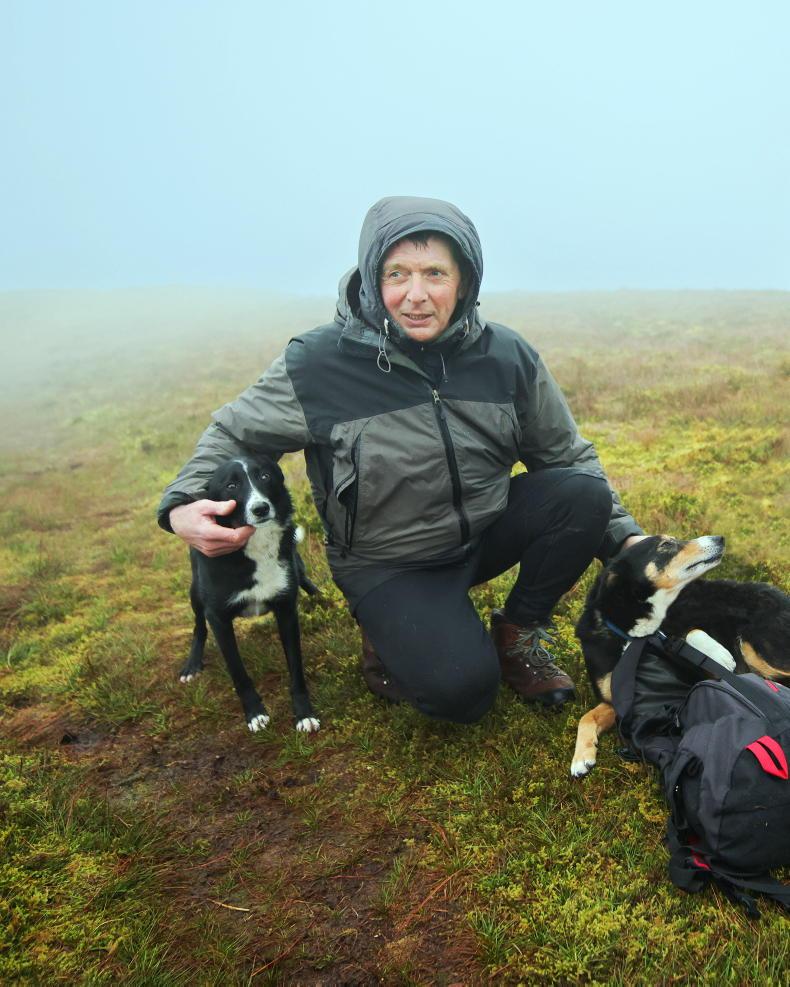
John Lynch.
As well as their ice cream business, the Flemings are also host farmers with Kerry Social Farming (KSF).
Catherine explains that she was first introduced to KSF while attending Irish Country Living’s Women & Agriculture conference in Killarney a few years ago.
“It resonated with me,” she says. “And once you meet one of the participants, you’re not going to say no.”
Established in 2013, KSF offers opportunities for people with physical and intellectual disabilities and those accessing mental health services to work with host farmers to achieve a greater quality of life and inclusion.
Generally, participants spend a half/full day every week on the farm, often accompanied by a support worker.
KSF operates on a voluntary model (i.e. there is no payment involved), but ensures no host is left out of pocket and that practicalities such as insurance are taken care of.
John Lynch – a sheep farmer himself – is a facilitator with KSF. It is his job to recruit host farms and match participants.
Having started with 11 farms and 12 community gardens a decade ago, the project now has close to 40 host farms and over 60 participants; who he believes have benefitted greatly.
“It’s getting out in the fresh air, working, doing, feeling,” he reflects.
“They’re meeting the extended family. They’re meeting the neighbours. Maybe there’s a contractor coming in doing a bit of plumbing or a bit of power washing… there’s fierce activity, so there’s fierce stimulation.”
For farmers, meanwhile, the participant’s visit is often an incentive to take on jobs that have been put on the long finger.
“Because they have the company, they have someone to hold a bowl, someone to bring a tape,” says John, who adds that it can also be a rare chance to slow down for a few hours.
“The farmers actually realise that there’s more to life than rush, rush, farming, farming. I think we’re all kind of guilty of that.”
At present, there are 60 people on the waiting list for placement and John and his fellow facilitators have ambitions to grow the number of host farms to 100. However, funding is an issue.
While the project currently receives €100,000 annually from the Department of Agriculture, as well as sponsorship from Kerry Group, more support is needed to achieve its full potential.
“We’re running on a shoe string,” says John. “There’s a lot more could be done.”
Farmers interested in coming on board as hosts with KSF can call 064-66-36572 or visit kerrysocialfarming.ie
Read more
From a hob, two pots and a mixer to artisan food producer of the year
From Argentina to Kerry - it's time to Tango
Twenty first of June 2019. It’s a date John Fleming will “never forget."
Because that’s when this fifth-generation dairy farmer sold his first scoop of Muckross Creamery ice cream.
“The longest day of the year,” he says, smiling. “I’d never sold anything to the public before that.” But now into his sixth summer in business, it’s fair to say he hasn’t looked back.
“Ice cream is a fun product… and it’s happiness,” says John. “Even the fact that we start with bringing a cow out this morning, getting milk off of her and within 24 hours, you have a product there. It’s a great adventure.”
Location, location, location
As the business name suggests, John lives and farms outside Killarney, Co Kerry with his wife Catherine and children, Elizabeth, Kate, Peig, Patrick, Eleanor and Jerry, who range in from ages 18 to 4.
He took over from his father, Patrick, in 2007, initially diversifying from mixed farming to dairying to supply Kerry Group. Having dried off this past winter for the first time, he is currently milking 79 Holstein Friesians, but plans to build up his herd again.
When it came to starting an on-farm business, John initially looked into selling his own milk directly, followed by cheese.
However, given the farm’s location on the tourist hot spot that is the Ring of Kerry, ice cream seemed a smart choice.
“One of the main drivers would be location,” he says. “From Muckross House, we’re a mile, a mile and a half.”
Location aside, there was another important factor.
“Having a wife that’s very driven,” he says, as Catherine – a vet who now works in the pharmaceutical industry – joins us for a chat.
She felt that ice cream would be a good fit for John and for their family, while complementing their farm business.
“For many dairy farmers, you’re working seven to seven, seven days, and there isn’t a huge amount to show for it,” she acknowledges. “I felt this would give us a bit of freedom from the commodity market of milk.”
One of the first steps was to contact the Department of Agriculture to ask what adjustments they would need to make to a back kitchen in their home to make it suitable for production (i.e. adding tiling and a fly screen).
They also spoke to other artisan ice-cream producers; sourced second-hand equipment like a pasteuriser, skimming machine and churn; and completed an intensive ice cream science course at UCC.
John estimates they spent about €20,000 to get up and selling in June 2019, initially starting with an ice cream cart on the Ross Road on the outskirts of Killarney town.

John with kids Jerry, Peig and Patrick during the St Patrick’s Festival Parade, Killarney.

John Fleming, with his signature Muckross Creamery ice cream, on the street. \ Valerie O'Sullivan
Culture shock
While this was “a culture shock”, getting face to face with customers early on was “the best thing ever."
“It forces you out of your comfort zone. It’s great to be dealing with the public,” he says. “That’s when you get real feedback.”
The Flemings describe their
process as “cow to cone," using their own milk and cream alongside free-range eggs and local ingredients like Sliabh Luachra strawberries.
Their current bestseller is crunchy caramel pecan ice cream, though seasonal flavours like mango or blackcurrant are also popular.
While John initially sold his ice cream directly, the business now has several strands.
Having completed the Food Academy course, it is available at Daly’s SuperValu in Killarney, where their standard 240ml tub retails at €3.87.
It is also on the menu at hotels and cafes including The Ross, Dinis Cottage and The Killarney Brewing Company, as well as food trucks in some of the Kingdom’s most scenic locations.
Local festivals, and bookings for private events like weddings are equally key, and crucially, can be worked around farm life.
Speaking of which, in conjunction with the five-star Killarney Park Hotel, the Flemings now offer private tours of the farm to show tourists their practices, process and end product, while off-season, Santa Claus visits a renovated cottage on their land for festive family experiences.

The Flemings had to make their home suitable for production.
Work-life balance
Growth has meant further investment.
John estimates they spent at least
another €50,000 on equipment including a bigger churn and freezer, though this time with 50% funding from Leader.
They are currently putting in three phase power, and will be moving into a purpose-built production unit on the farm shortly.
Down the line, they hope to extend their product range i.e. create a yogurt to sell to local hotels using skimmed milk that was previously going to their calves.
However, with a young family, John and Catherine are conscious of building a business that is sustainable in every sense. Staying true to their core values is key.
“If you want to use Irish products, use Irish products,” says Catherine.
“If you start looking at the price, you’ll straight away dump the Irish [ingredients] and go with the cheap ones.
But you have to stay true to your own values. You can’t just talk the talk and walk a different walk.
“Those kinds of things, they might not reward you now; but they will eventually.”
Longer-term, they see the ice cream as a means to give both themselves and their children more options when it comes to succession.
“There’s no master plan, but maybe if somebody takes over the farm, maybe we [Catherine and John] might run the ice cream business?” John proposes.
“Or maybe one of the others might run the ice cream business in tandem with the farm as well. There’s several options there.”
Right now though, summer is here; and it’s time to scoop while the sun shines.
Visit muckrosscreamery.ie or follow
@muckrosscreamery on Instagram

John Lynch.
As well as their ice cream business, the Flemings are also host farmers with Kerry Social Farming (KSF).
Catherine explains that she was first introduced to KSF while attending Irish Country Living’s Women & Agriculture conference in Killarney a few years ago.
“It resonated with me,” she says. “And once you meet one of the participants, you’re not going to say no.”
Established in 2013, KSF offers opportunities for people with physical and intellectual disabilities and those accessing mental health services to work with host farmers to achieve a greater quality of life and inclusion.
Generally, participants spend a half/full day every week on the farm, often accompanied by a support worker.
KSF operates on a voluntary model (i.e. there is no payment involved), but ensures no host is left out of pocket and that practicalities such as insurance are taken care of.
John Lynch – a sheep farmer himself – is a facilitator with KSF. It is his job to recruit host farms and match participants.
Having started with 11 farms and 12 community gardens a decade ago, the project now has close to 40 host farms and over 60 participants; who he believes have benefitted greatly.
“It’s getting out in the fresh air, working, doing, feeling,” he reflects.
“They’re meeting the extended family. They’re meeting the neighbours. Maybe there’s a contractor coming in doing a bit of plumbing or a bit of power washing… there’s fierce activity, so there’s fierce stimulation.”
For farmers, meanwhile, the participant’s visit is often an incentive to take on jobs that have been put on the long finger.
“Because they have the company, they have someone to hold a bowl, someone to bring a tape,” says John, who adds that it can also be a rare chance to slow down for a few hours.
“The farmers actually realise that there’s more to life than rush, rush, farming, farming. I think we’re all kind of guilty of that.”
At present, there are 60 people on the waiting list for placement and John and his fellow facilitators have ambitions to grow the number of host farms to 100. However, funding is an issue.
While the project currently receives €100,000 annually from the Department of Agriculture, as well as sponsorship from Kerry Group, more support is needed to achieve its full potential.
“We’re running on a shoe string,” says John. “There’s a lot more could be done.”
Farmers interested in coming on board as hosts with KSF can call 064-66-36572 or visit kerrysocialfarming.ie
Read more
From a hob, two pots and a mixer to artisan food producer of the year
From Argentina to Kerry - it's time to Tango









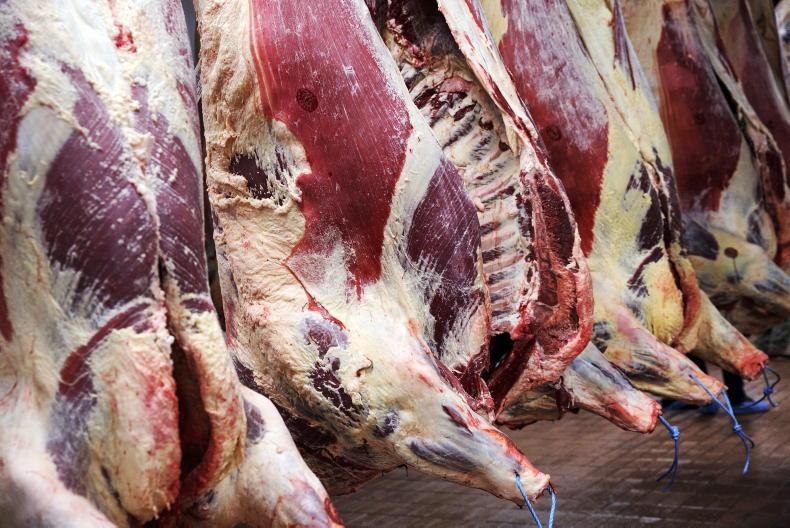

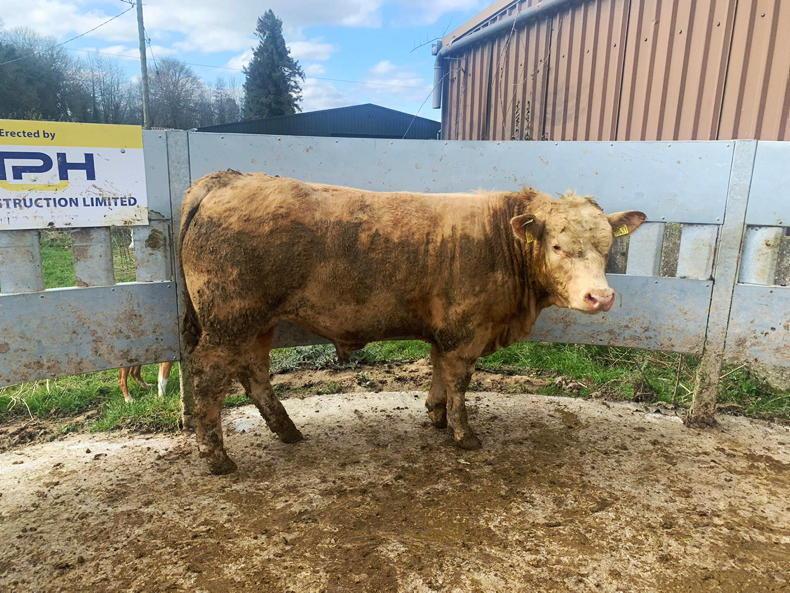


SHARING OPTIONS